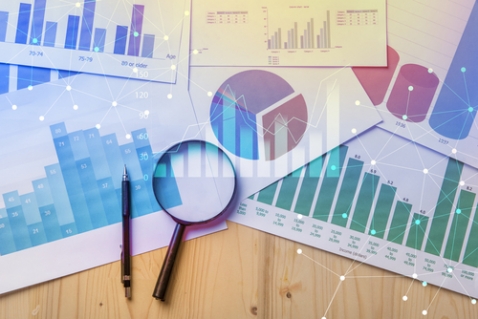The economic power of data
Fecha de la noticia: 13-09-2018

Data has become a fundamental asset to promote our economy and transform our society. In the current economic environment, having up-to-date information at the right time can be a great competitive advantage. Data can be transformed into knowledge that facilitates decision making and allows the generation of economic value. Thanks to data, different aspects of economic activity can be optimized, from gaining production agility to personalizing the customer experience.
According to The economic Value of the data report, conducted by HM Treasure - the UK government department responsible for the development and implementation of fiscal and economic policies - those companies that make decisions based on data get a higher performance and a productivity level. In addition, the European Commission estimates that "even limited use of big data analytics solutions by the top 100 EU manufacturers could boost EU economic growth by an additional 1.9% by 2020."
Despite these advantages, only a small part of the companies extract all the possible value from data. There are multiple reasons, from lack of human or technical skills to lack of a common strategy in the organization. Or just because they do not know how start.
One of the main challenges that companies have to face is the large amount of information available. According to the OCDE, the digital universe was 8 zettabytes in 2015, but that volume is forecast to increase up to 40 times over. In addition, data handled by companies come from different sources (from traditional databases to social networks or Internet of Things initiatives), and has different formats, which makes difficult to analyze and manage data. Technological advances in storage, processing and analysis techniques have helped companies solve these challenges, but there is still work to be done.
In this context, governments can drive policies to help promote a data driven economy. For this, it is necessary to apply policies that improve the flow of data through the economy, ensuring that companies can access to high quality data in a safely way. Specifically, the report The economic Value of the data mentions 5 challenges where public administrations actions are fundamental:
- Addressing ownership and control of data. Through a legal framework that combines the protection of particular rights and access to information right.
- Maintaining protection of personal data. It is essential to protect sensitive information that identifies a particular individual, guaranteeing that it can only be used correctly anonymized.
- Promote openness in public sector data. An increasing number of public organizations are implementing open data platforms, where data have an accessible format and a license that allows any citizen to access, use and share the information. But his work does not end here, since they also carry out dissemination and promotion actions.
- Driving interoperability and common standards. It is important to establish standards that facilitate data interoperability, as well as to develop and encourage the voluntary adoption of such standards (for example, promoting certifications).
- Enabling safe, legal data sharing. Government should facilitate that companies share useful data to support growth and innovation, promoting agreements that are mutually beneficial for large and small companies.
The future passes through an economic environment where companies rely on data to achieve their business objectives. To reach this point, companies have many challenges ahead. They will have to overcome some of these challenges alone, but in others cases, they could leverage on policies already promoted by public administrations. In this way, working together will be easier to promote innovation and economic development in a safe and just way.











